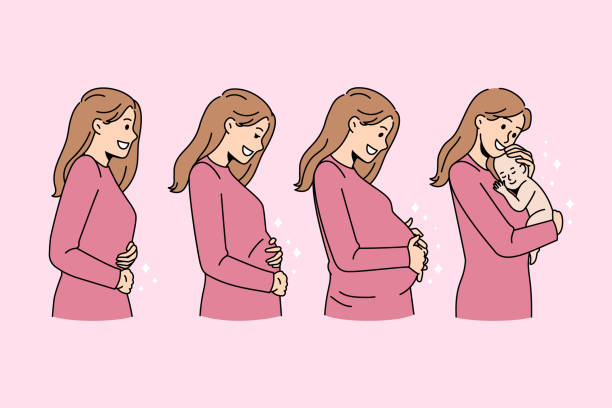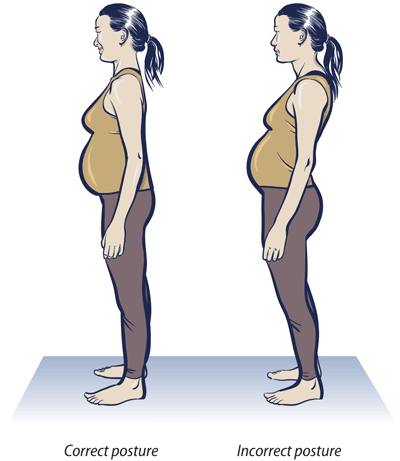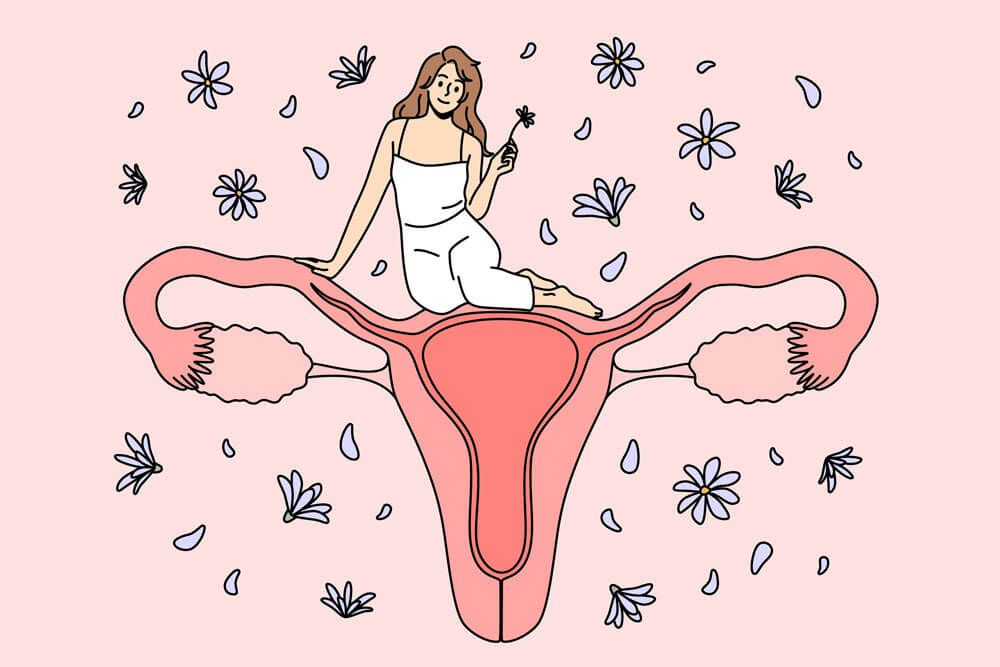Back
Pelvic Floor and Pregnancy: What Expecting Mothers Should Know
By Dr. Christine Martirez PT, DPT on 2/2/2024

Pregnancy is a transformative journey marked by physical and emotional changes, and the pelvic floor plays a pivotal role in supporting the body during this incredible process. In this blog post, we'll explore what expecting mothers should know about the pelvic floor, the anatomical changes that occur, and the crucial role pelvic floor physical therapy plays in preparing for childbirth.
The Pelvic Floor and Pregnancy
Understanding the Pelvic Floor:
The pelvic floor is a group of muscles, ligaments, and connective tissues that form a hammock-like structure at the base of the pelvis. It plays a crucial role in supporting the pelvic organs, including the bladder, uterus, and rectum.Anatomical Changes During Pregnancy:
As the body adapts to the growing baby, the pelvic floor undergoes significant changes. Increased weight and hormonal shifts can impact the muscles and ligaments, potentially leading to issues such as pelvic pain, incontinence, and changes in posture.Postural Adjustments:
The growing uterus shifts the center of gravity, prompting the body to adapt with changes in posture. This adjustment can influence the pelvic floor and contribute to issues like lower back pain and pelvic discomfort.

Anatomical Changes During Pregnancy
As the body adapts to the growing baby, the pelvic floor undergoes significant changes. Increased weight and hormonal shifts can impact the muscles and ligaments.
First Trimester
Implantation and Cellular Growth: The journey begins with the fertilized egg implanting itself into the uterine lining. Rapid cellular division follows, forming the embryo and laying the foundation for future development.
Hormonal Surge: Hormones, particularly human chorionic gonadotropin (hCG) and progesterone, surge to support the pregnancy. These hormones play a crucial role in maintaining the uterine lining and preventing menstruation.
Morning Sickness and Fatigue: Many women experience morning sickness, characterized by nausea and vomiting. Fatigue is also common due to increased hormone levels and the energy demands of early fetal development.
Breast Changes: The breasts undergo changes, becoming more tender and sensitive. Hormones trigger the growth of mammary glands and increased blood flow, preparing the body for breastfeeding.
Bloating and Urinary Frequency: Hormonal changes can lead to bloating, and the growing uterus puts pressure on the bladder, causing increased urinary frequency.
Second Trimester
Visible Bump and Baby's First Movements: The second trimester is often hailed as the "honeymoon phase" of pregnancy. The baby bump becomes more noticeable, and mothers may feel the first flutters of fetal movement, known as quickening.
Decreased Morning Sickness: Many women experience relief from morning sickness during the second trimester, as hormone levels stabilize.
Glowing Skin and Hair: Increased blood flow and hormone levels contribute to a radiant complexion. Hair may appear thicker and more lustrous.
Expanded Blood Volume: Blood volume expands to accommodate the growing demands of the developing fetus. This can lead to increased circulation and a sense of warmth.
Breast Growth Continues: Breast growth continues, and colostrum, the first milk, may start to be produced.
Third Trimester
Rapid Fetal Growth: The third trimester is characterized by significant fetal growth. The baby's organs mature, and body systems prepare for independent function.
Weight Gain and Center of Gravity Shift: As the baby grows, weight gain becomes more pronounced, and the mother's center of gravity shifts forward. This can lead to changes in posture and an altered gait.
Braxton Hicks Contractions: Braxton Hicks contractions, often referred to as "practice contractions," become more noticeable. These contractions help prepare the uterus for labor.
Pelvic Changes: The pelvic bones may start to loosen in preparation for childbirth. This, coupled with the pressure of the growing baby, can contribute to discomfort and changes in mobility.
Shortness of Breath: As the uterus expands, it can put pressure on the diaphragm, leading to a sensation of breathlessness.
Postural Changes During Pregnancy

Forward Head Posture:
As the weight of the growing belly increases, a common adaptation is the forward movement of the head. This change, known as forward head posture, is the body's way of counterbalancing the weight in the front. This can lead to weakening of our deep cervical stabilizer muscles.Rounded Shoulders:
Accompanying forward head posture, many pregnant individuals may experience rounded shoulders. The chest muscles tighten, and the shoulder blades may protract to accommodate the shifts in weight distribution.Increased Lumbar Lordosis:
To counterbalance the anterior weight displacement, the lumbar spine often undergoes an increase in its natural curve, resulting in a more pronounced lumbar lordosis. This adaptation helps distribute the load more evenly. However this chronic posturing can lead to tightness in the hip flexors and weakening of the core.
Changes in our posture can have a trickle effect through the kinetic chain, eventually impacting the integrity of the pelvic floor muscles.

What Expecting Mothers Should Know:
Pelvic Floor Awareness:
Developing an awareness of the pelvic floor and its functions is crucial during pregnancy. This awareness can aid in preventing and addressing issues related to pelvic health.Pelvic Floor Coordination:
Incorporating pelvic floor coordination exercises into daily routines can help strengthen these muscles. However, it's essential to practice proper technique to ensure effectiveness.Posture and Body Mechanics:
Emphasizing good posture and body mechanics is key to reducing strain on the pelvic floor. Simple adjustments, such as sitting with proper alignment and avoiding prolonged standing, can make a significant difference.Hydration and Nutrition:
Maintaining proper hydration and nutrition supports overall tissue health, including the pelvic floor. Adequate water intake and a balanced diet contribute to the body's resilience during pregnancy.

Pelvic Floor Physical Therapy in Birth Preparation
Customized Assessments:
Pelvic floor physical therapists conduct personalized assessments to identify any pre-existing issues or potential challenges related to pelvic floor health during pregnancy.Education on Birth Mechanics:
Therapists provide valuable education on the mechanics of childbirth and how pelvic floor health contributes to a smoother delivery. This includes guidance on optimal birthing positions, pushing mechanics, and strategies to reduce the risk of complications.Preventive and Rehabilitative Exercises:
Tailored exercise programs address both preventive measures and rehabilitation, focusing on strengthening, flexibility, and relaxation of the pelvic floor muscles.Breathing Techniques:
Proper breathing techniques are integral to pelvic floor health and birth preparation. Therapists guide expecting mothers in incorporating diaphragmatic breathing, promoting relaxation and optimal muscle function.Postpartum Support:
Pelvic floor physical therapy extends into the postpartum period, offering support for recovery and addressing any lingering pelvic health issues.
Embracing the changes that come with pregnancy includes prioritizing the health of the pelvic floor. By understanding the physiological adjustments, practicing pelvic floor awareness, and seeking guidance from pelvic floor physical therapists, expecting mothers can empower themselves with the tools needed for a more comfortable pregnancy and a smoother birthing experience. Nurturing the pelvic floor is not just an investment in the present but also a foundation for long-term well-being.
At Pelvic Health Physical Therapy, our physical therapists will provide you with a thorough evaluation to determine what the best treatment plan will be for you. We understand how daunting navigating pregnancy can be, and we want to help empower you and give you the tools you need for a safe and healthy birth. We'll help lift all of your physical stresses away! Please email receptionmadison@pelvichealthnj.com to book an appointment, or call our office at 908-443-9880.
Read More:
Dry Needling for C-Section Scars and Postpartum Recovery By Dr. Christine Martirez PT, DPT on 10/15/2024 Learn how dry needling can be used for c-section scars and c-section recovery How Red Light Therapy Can Be Used to Treat Pelvic Floor Dysfunctions By Dr. Christine Martirez PT, DPT on 10/15/2024 Learn about red light therapy and how it can be used to treat pelvic floor dysfunctions
Are you ready to live pain free?
Request An Appointment